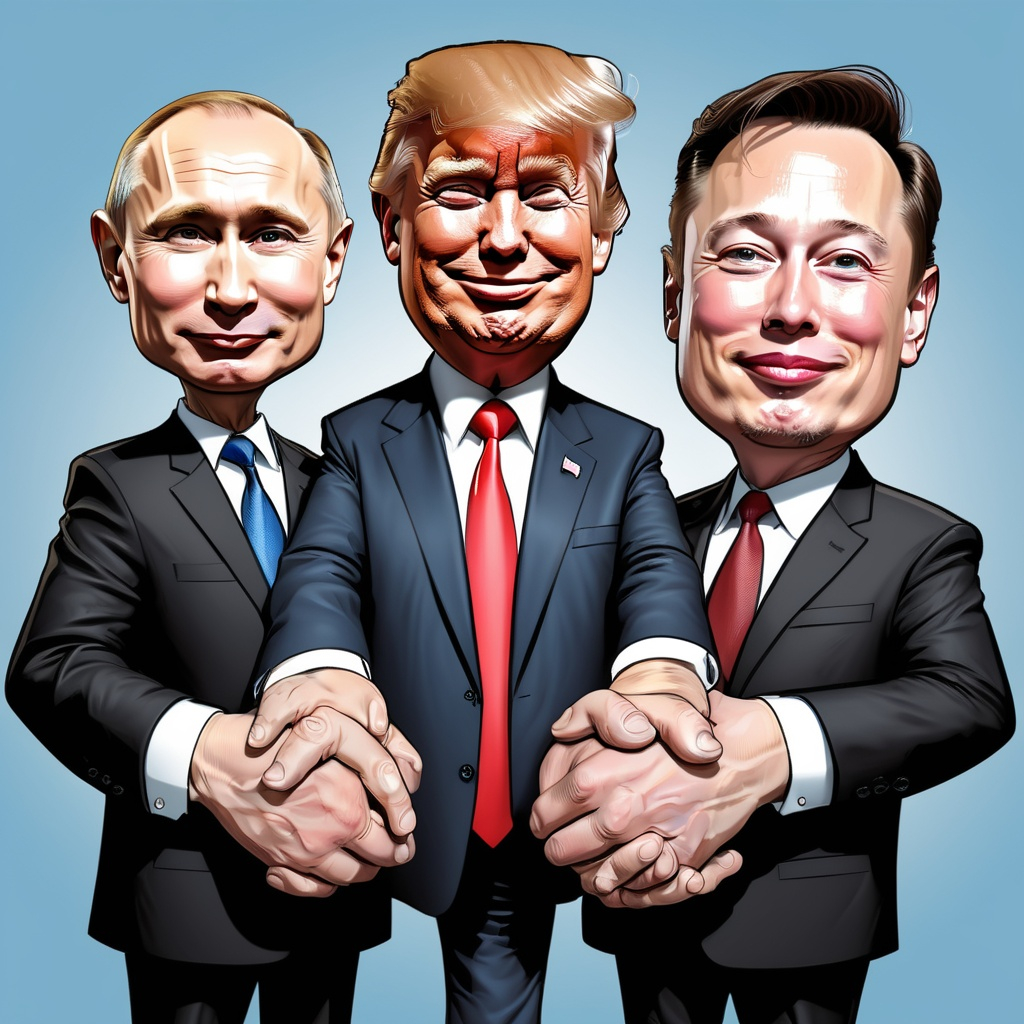
Dear Editor,
Recent developments in global and Canadian politics have raised serious concerns about the influence of powerful figures like Vladimir Putin, Donald Trump, and Elon Musk on both international relations and domestic policy. It’s becoming increasingly evident that these connections are not only shaping U.S. policy but also reaching deep into Canadian politics, particularly within Ontario.
Firstly, it’s clear that Russian President Vladimir Putin maintains significant influence over former U.S. President Donald Trump. After Trump won the US election, Putin’s state television aired nude photos of Melania, which shocked pundits and was a way to signal his power over Trump. Trump’s soft stance on Russia during his presidency, his admiration for Putin, and his consistent reluctance to criticize the Russian leader have led many to question whether Trump is, in some sense, under Putin’s sway. This relationship, both transactional and ideological, raises alarming questions about the role of foreign influence in shaping U.S. politics—and by extension, its international actions.
What’s even more troubling is the connection between Trump and Canada’s Conservative Party, particularly leader Pierre Poilievre. A couple of days after Trump won the election, MP Jamil Jivani was seen in the dining room on Capitol Hill, with the incoming VP, JD Vance. They go way back. Vance’s ties to Peter Thiel and Elon Musk are how he was able to run alongside Trump. Thiel is extremely dangerous and hellbent on turning America into a dictatorship.
Another key player is Pierre Poilievre, who has frequently aligned himself with right-wing populist movements in the U.S., echoing Trump’s rhetoric and policy proposals. It’s not hard to see how Trump’s influence could extend into the Canadian political sphere through Poilievre’s leadership, creating a potential channel for foreign interference, whether intentional or not, in our democratic processes.
On a more local level, the Ontario Conservative government’s recent decision to pay Elon Musk’s Starlink company $100 million for satellite internet services in Northern Ontario is particularly troubling, especially being announced a few days after the US election, with some Conservatives tagging Elon Musk almost as a way to get his attention. Musk, who has close ties with the Trump administration and is now taking credit for Trump’s win, has used his wealth and influence to shape policy and public opinion globally. While expanding access to internet services in rural areas is undoubtedly important, giving Musk such a large sum of taxpayer money is concerning and many constituents are already questioning why the cost is so high. Musk’s influence over global communications, combined with his business dealings with figures like Trump, underscores a growing trend of private interests—backed by powerful political relationships—having an outsized influence on public policy in Canada. Elon Musk needs to back away from interfering in our elections here, we cannot let him influence them in any way.
The optics of these relationships are troubling. With Putin’s influence on Trump, Musk’s business dealings with both men, or the way the Ontario government is handing over taxpayer dollars to Musk, these connections suggest a disturbing erosion of Canadian sovereignty and autonomy in our own policy decisions. Canadians need to ask themselves: What is the true cost of these cozy relationships with foreign and corporate powers? And at what point does it stop being about governance and start being about influence from abroad, which we saw and experienced with the Truck Convoy?
We need to stand firm, prioritize national interests, and safeguard our democracy from external influence—whether from foreign governments or global billionaires.
Sincerely,
Kelly Bergeron
Cornwall, ON













